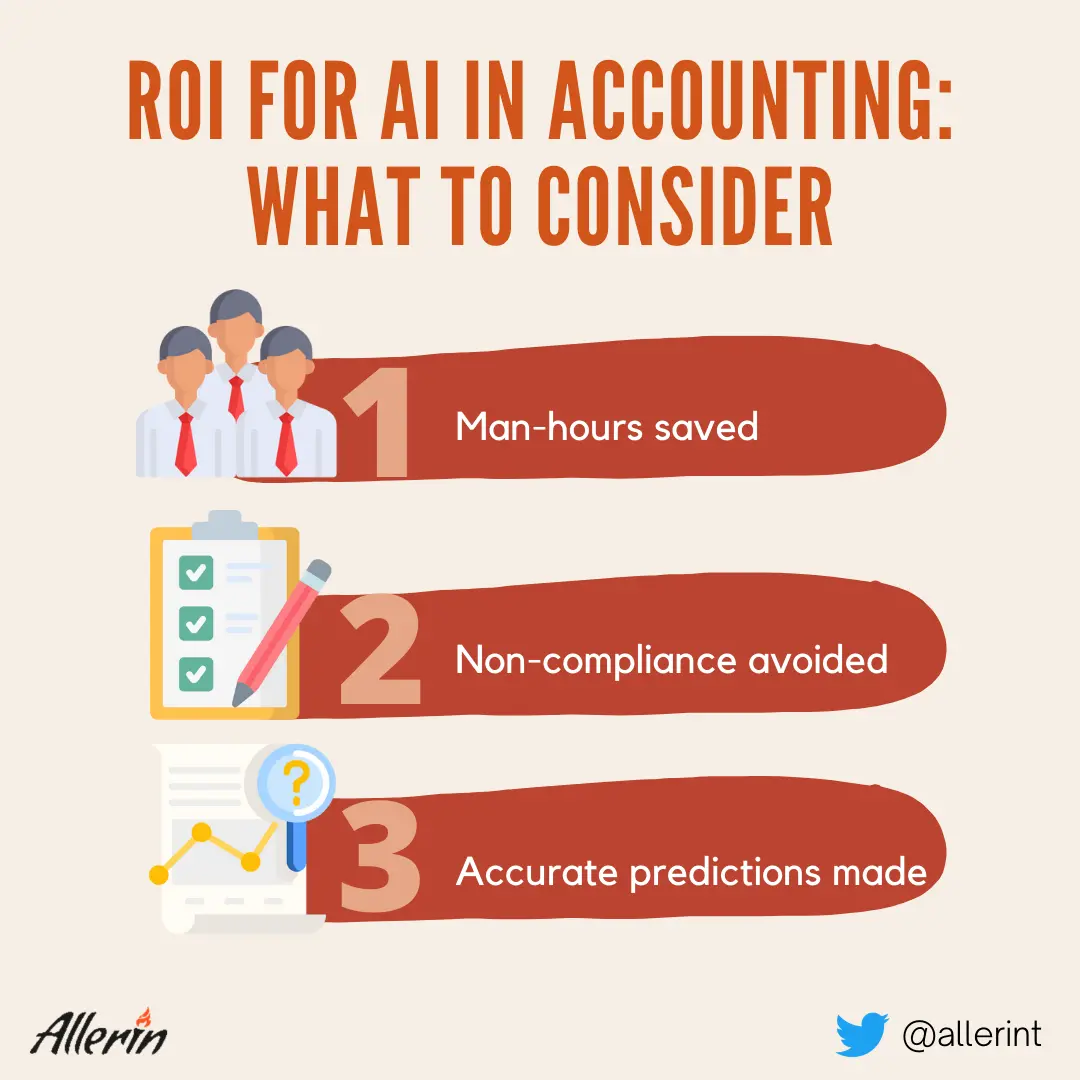AI possesses the qualities that make it a perfect fit for automation in financial accounting.
It is important to quantify the results achieved by these qualities to get an accurate ROI estimate for AI in accounting.
Accounting is a function that demands extreme diligence, accuracy and analytical ability, all of which AI possesses in spades. While AI’s massive data processing capability has always been an asset to accounting teams in organizations, its newer subsets like natural language generation and computer vision have completely reshaped the field of financial accounting and reporting. However, accurately gauging the ROI of AI in accounting is a task that can challenge even the most accomplished accounting AI tools. That’s because it involves a combination of a lot of real as well as hypothetical components, as follows:
Number of Man-hours Saved
The most obvious benefit of using AI in accounting is the number of man-hours it saves for the accounting team. Accounting involves a lot of activities that require tedious data entry and analysis. Using tools like computer vision and Optical Character Recognition (OCR), AI-driven accounting tools ensure that data from different sources are instantly gathered and filed in the required places. The number of man-hours that would be otherwise used to file and reconcile accounting records by an organization’s accounting team can be logged in as an ROI component. This is the most straightforward component of ROI calculation for AI in accounting.
Cost of Non-Compliance
The primary reason for organizations having specialized accounting teams is so that they can comply with financial regulations. A team of qualified accountants aided by modern AI tools helps companies avoid heavy financial penalties, reputational damage and loss of goodwill. Calculating the ROI for AI in accounting should, therefore, include the cost that the company would have paid for non-compliance. However, this can get a little complicated as the penalties for different types of non-compliance can differ and may not follow a standard model. Moreover, the cost of non-compliance can not be accurately assessed until it is actually imposed, and so the money saved through compliance is a purely hypothetical estimate.
Gains from Accurate Predictions
Companies use historical financial data to make forecasts and plans. To do so, the finance and accounting teams perform analyses on financial data using AI algorithms to optimize financial planning. However, just like the savings made through compliance, the financial gains made through accurate AI predictions are hard to quantify. As a result, the cost of accurate predictions cannot be made with absolute certainty.
These components of ROI for AI in accounting can be calculated by applying a variety of approximation and extrapolation techniques. In order to gain a reasonably close ROI estimate, businesses should consider both historical company data and industry benchmarks.




Leave your comments
Post comment as a guest